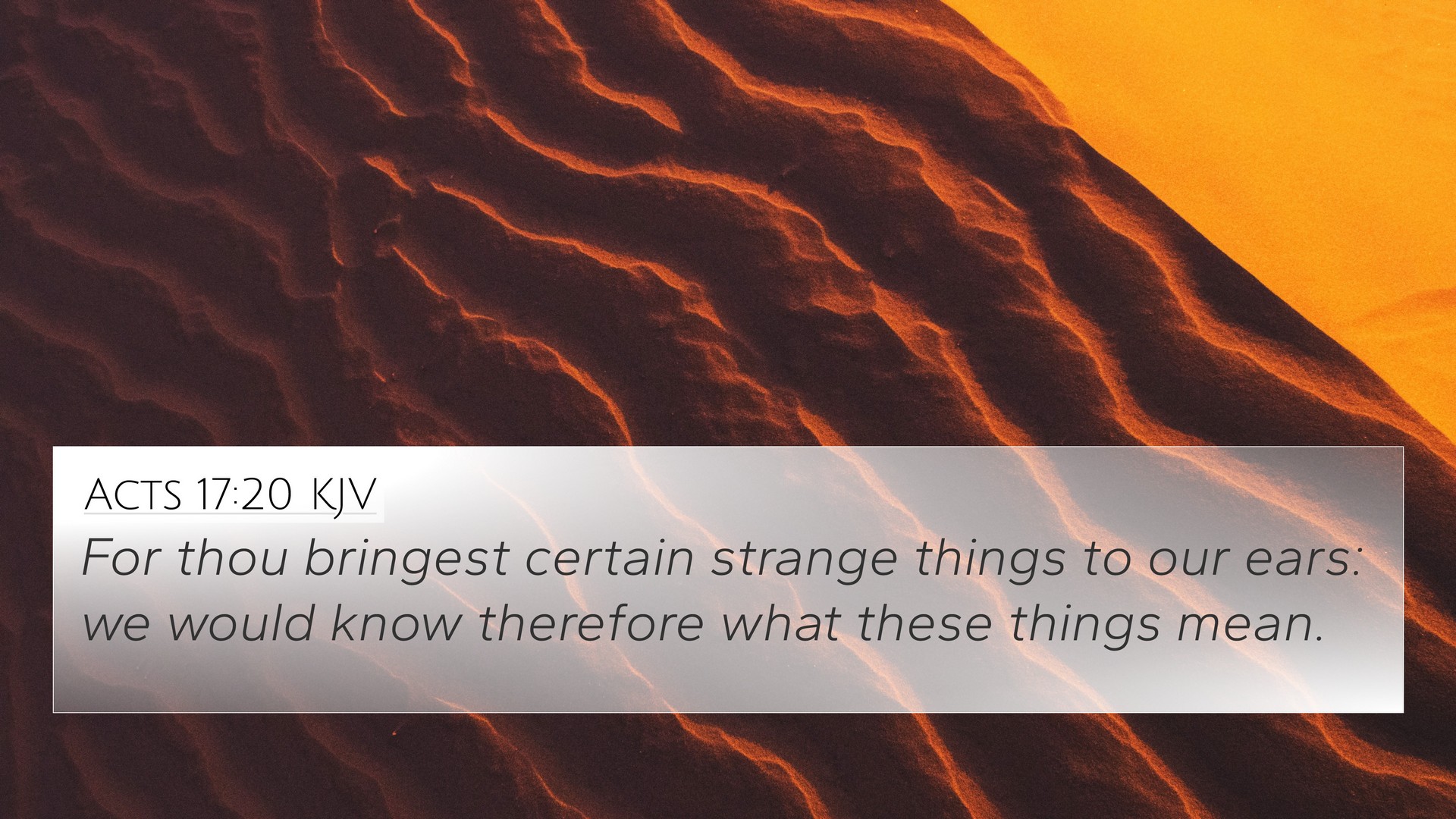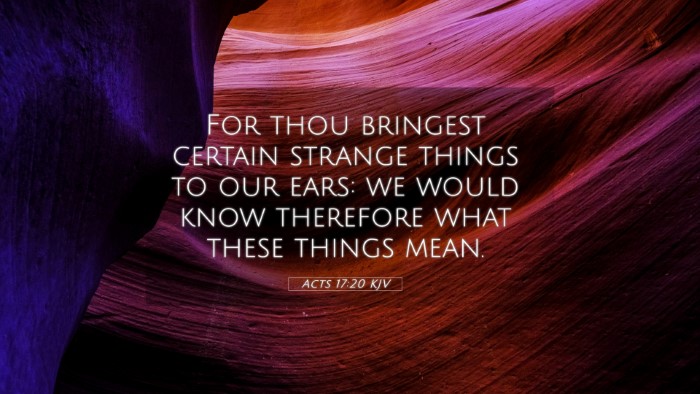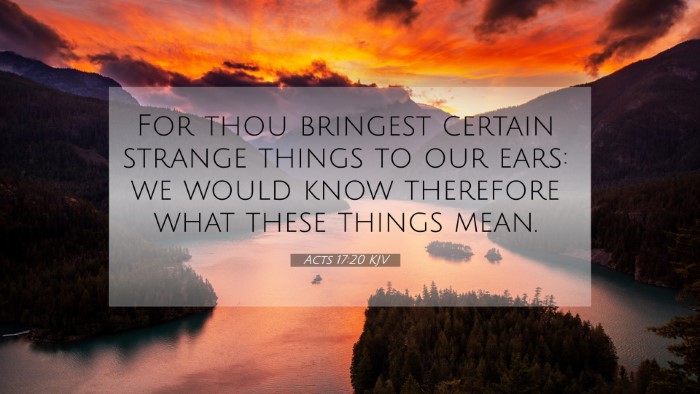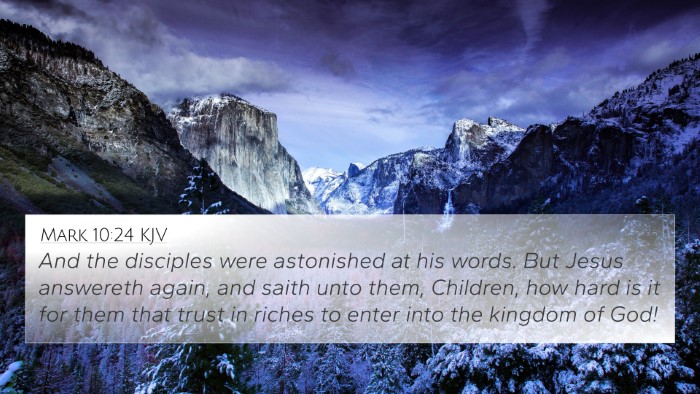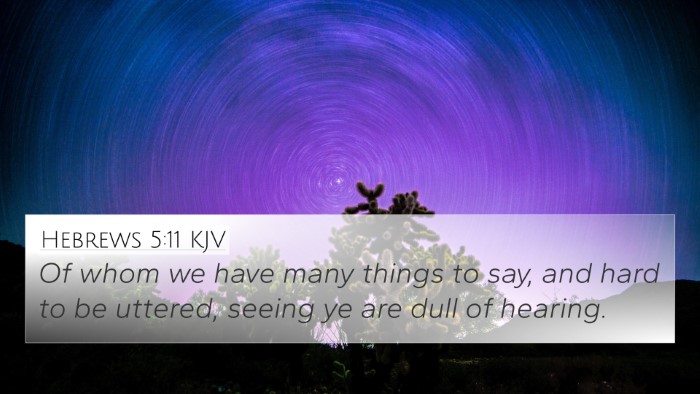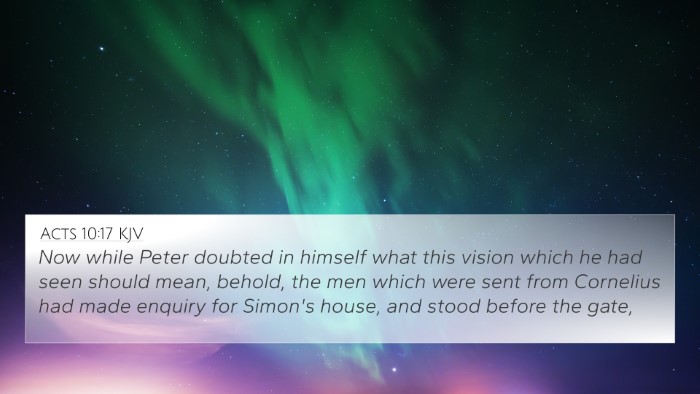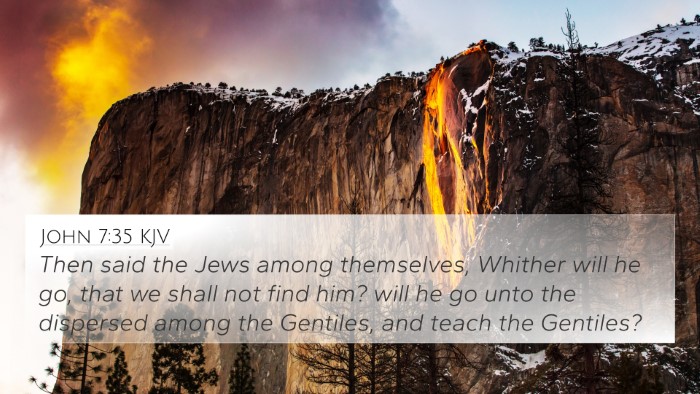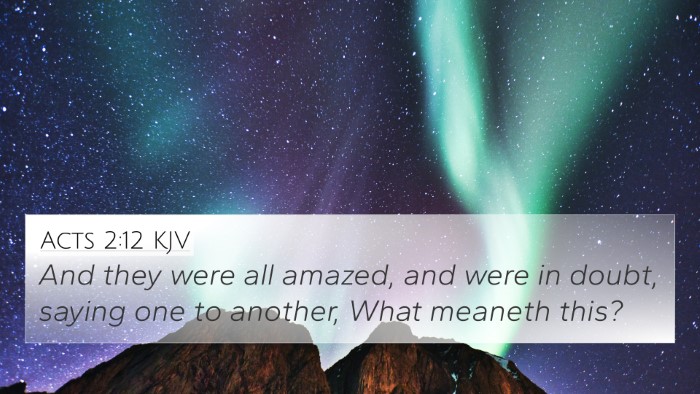Summary of Acts 17:20 Meaning
Acts 17:20 captures an essential moment in Paul's missionary journey. As he speaks of the resurrection of Jesus in Athens, he encounters a people steeped in philosophical debate and curiosity. The verse reflects their response to the strange ideas being presented, particularly concerning the resurrection, suggesting a desire for clarity and understanding.
Commentary Insights
-
Matthew Henry: Highlights the Athenians' intellectual curiosity and the blending of different philosophies. He notes their inclination toward novelty, indicating their willingness to explore new ideas but also their struggle to grasp the profound nature of the gospel's message.
-
Albert Barnes: Points out that the Athenians were known for discussing new and strange teachings. He emphasizes that the request for explanation reveals their openness but also a level of confusion about the core of Christian doctrine, particularly the resurrection—a theme central to Paul's preaching.
-
Adam Clarke: Underlines the cultural backdrop of Athens, where diverse philosophical schools influenced public thought. Clarke indicates that Paul's message challenged these ideas, leading to both intrigue and skepticism among the listeners.
Contextual Overview
This verse occurs in the context of Paul's sermon at the Areopagus, where philosophical and religious ideas converged. The Athenians’ reaction encapsulates a broader theme of engagement with the gospel, reflecting both the challenges and opportunities of discussing faith within varied cultural frameworks.
Bible Verse Cross-References
For a deeper understanding of Acts 17:20, here are some cross-references that provide thematic connections between Bible verses:
- Acts 17:18 – Discusses the philosophical context in which Paul was engaged.
- 1 Corinthians 1:23-25 – Explores the contrast between wisdom and the foolishness of the cross.
- Colossians 2:8 – Warns against being taken captive by philosophy and empty deceit.
- Romans 1:21-23 – Reflects on the futility of thoughts without recognizing God.
- 1 Peter 3:15 – Encourages believers to always be ready to explain their hope.
- John 14:6 – Affirms Jesus as the way, the truth, and the life, addressing the nature of truth.
- Matthew 28:19-20 – The Great Commission resonates with Paul's mission to share the gospel broadly.
Connections Between Bible Verses
Acts 17:20 illustrates the theme of faith engaging with cultural ideologies and philosophical thought. The struggle to comprehend spiritual truths is a recurring motif in scripture. The Athenians’ desire to understand aligns with several biblical principles:
- Seeking Knowledge: Proverbs 2:3-5 encourages seeking insight and understanding.
- Truth and Understanding: John 8:32 states, "And you will know the truth, and the truth will set you free."
- Faith and Reason: Acts 17:11 emphasizes the importance of examining the Scriptures, linking faith with inquiry.
Thematic Bible Verse Connections
The exchange in Acts 17:20 opens a dialogue about the intersection of faith and philosophy. This conversation continues to engage believers in understanding how biblical teachings relate to contemporary thought. The engagement Paul had with the Athenians serves as a model for modern discussions within secular frameworks.
Tools for Bible Cross-Referencing
Utilizing a Bible concordance or a Bible cross-reference guide can aid in discovering many connections in scripture. These tools facilitate deeper research into:
- Identifying themes in the Bible
- Understanding inter-Biblical dialogue between the Old and New Testaments
- Building a framework for sermon preparation and teaching
Bible Cross-Reference Study Methods
For those looking to engage more profoundly with the text, here are suggestions for cross-referencing Bible study:
- Utilize Bible reference resources to trace themes across both testaments.
- Compile cross-reference Bible study plans to explore nuanced connections.
- Engage in a detailed cross-reference between the Gospels, particularly in how they share the resurrection narrative.
Conclusion
Acts 17:20 invites us into a rich dialogue between faith and understanding, illustrating how the early church interacted with diverse worldviews. In seeking connections between biblical texts, believers can deepen their comprehension of scripture, finding relevance in their own contexts. This interconnectedness of themes encourages a holistic approach to studying God's Word.
